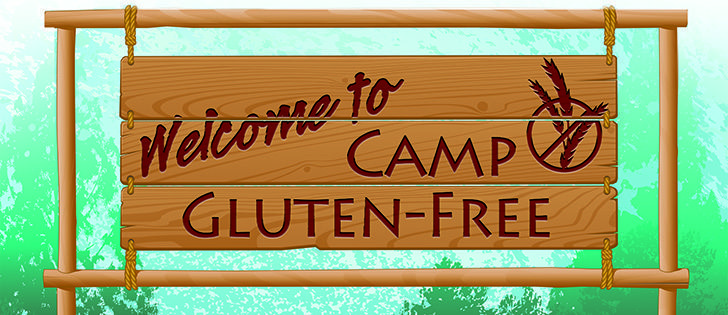Parents embrace program | Alberta camp designed for children with gluten intolerance
When parents send their child away to summer camp, there are dozens of things to worry about. Will he get along with the other kids? Will she apply sunscreen? Did we pack enough underwear?
For parents of children that have celiac disease or gluten intolerance, the concerns are more serious. If their children accidentally consume food that contains gluten, they could become severely ill.
Since it’s stressful for parents and tiresome for kids to constantly ask what they can eat, celiac associations across North America have started gluten-free camps for kids.
Read Also

Nutritious pork packed with vitamins, essential minerals
Recipes for pork
“For parents, it’s peace of mind. But on the other side, these children are conditioned and have to ask questions that most children don’t have to,” said Kathy Collier, Calgary program co-ordinator for the Canadian Celiac Association.
“Going to a gluten-free camp allows them to just concentrate on being a kid and not having to worry about asking all those questions…. Those kids just want to have fun, play and be kids.”
Several years ago, Edmonton and Calgary celiac chapters organized the first gluten-free kids’ camp in Alberta. The Rod McDaniel Celiac Kids Camp will be held this month at Camp Kindle near Water Valley, Alta.
Collier said attendance has increased over the last several years and this year’s camp is full with 50 participants.
“The demand for the camp is growing because I think more people are being diagnosed. There’s more information on it and doctors are testing for it.”
Children don’t need a celiac diagnosis to attend the Alberta camp. If they are sensitive or allergic to gluten, that’s totally fine, Collier said.
“If they’re not able to eat gluten, we’re happy to have them.”
Peter Taylor, Canadian Celiac Association executive director, was unsure how many gluten-free camps exist in Canada. Taylor said celiac chapters operate independently from the national office so there could be weekend getaways in a few provinces that offer gluten-free camping for kids.
Gluten-free camps exist in dozens of states, including Michigan, Minnesota, Rhode Island, North Carolina, Washington, Oregon, Kentucky, Texas, Pennsylvania and California.
In Manitoba, the provincial celiac association chapter has organized gluten-free camps at Camp Nutimik in Whiteshell Provincial Park for the last two years.
This summer, they are hosting two camps, one for kids aged 8-11 and another for 11-13 year olds.
Sandra Wolch, whose 14-year-old son Jackson has celiac disease, helped establish the Manitoba camp.
“You want your kids to do what other kids are doing,” she said, explaining the need for a gluten-free camp. “You want them to feel like they’re normal.”
Collier, who has a daughter with celiac disease, added that kids need a break from constant vigilance and fears around food.
“It takes until about day three before they believe that they can eat (everything),” she said.
Wolch and her husband Mark sent Jackson to a regular camp a few years ago but the experience was stressful. The camp chef called her several times during the week to inquire about ingredients and determine what was safe for Jackson.
Removing that uncertainty is an immense relief for parents, Collier said.
“I can drop my kid off, they can go to camp and I don’t need to worry.”
Reactions vary, but the health of certain people with celiac disease can be jeopardized if they consume a fractional amount of gluten.
“There are non-reactive celiacs and then there are ones that they get terribly, terribly ill,” Collier said. “Whether you get the reaction or not, whether you get sick to your stomach, whether you are throwing up… it’s still damaging the gut, whether you get the outward signs or not.”
Collier conceded that gluten-free is currently trendy.
With books like Wheat Belly that portray bread as a dietary devil and an endless number of celebrities promoting gluten-free lifestyles, millions of North Americans are either cutting or reducing wheat consumption.
Collier said it’s a mistake to assume that gluten-free is superior to a diet that contains wheat.


















